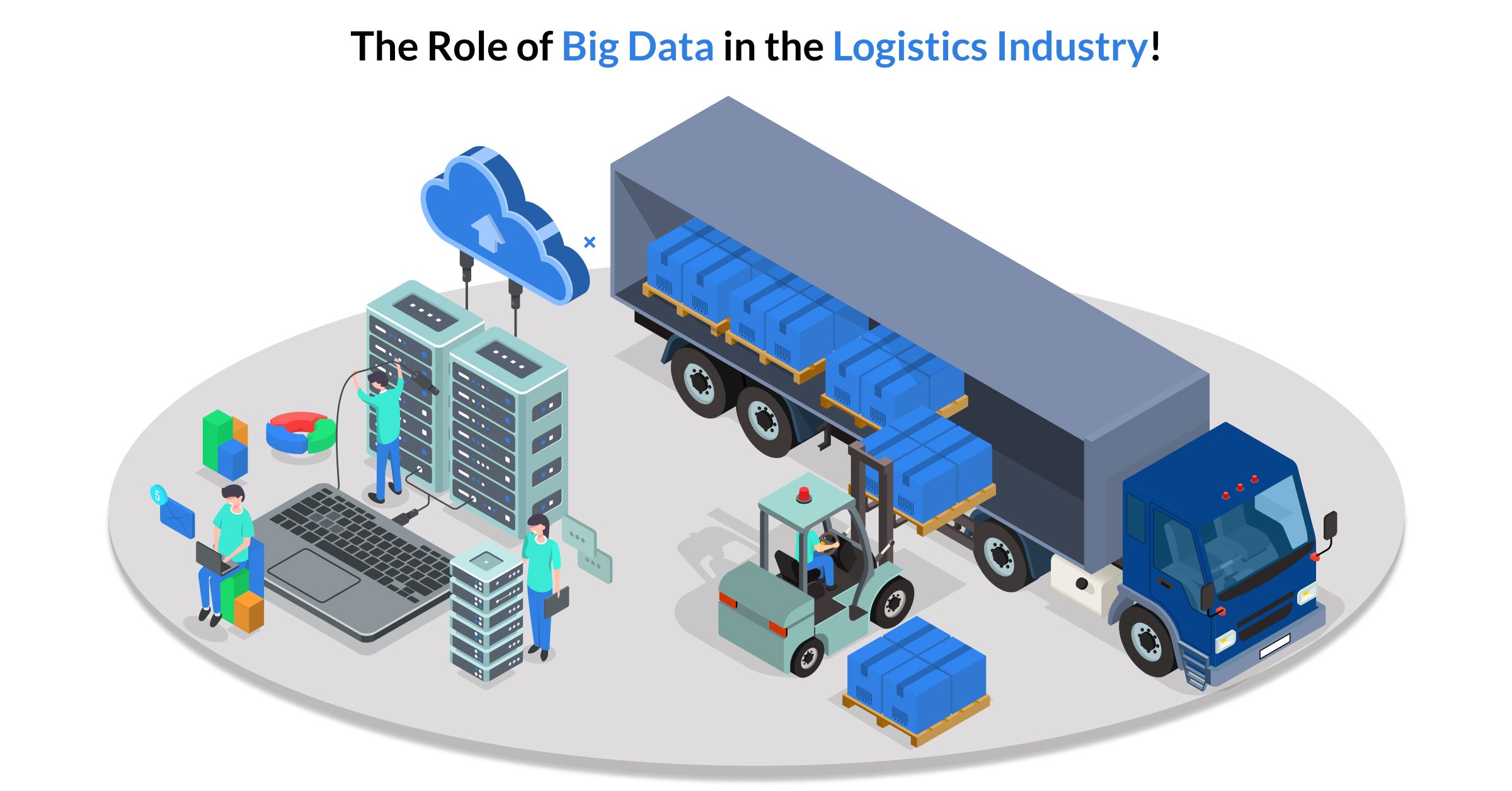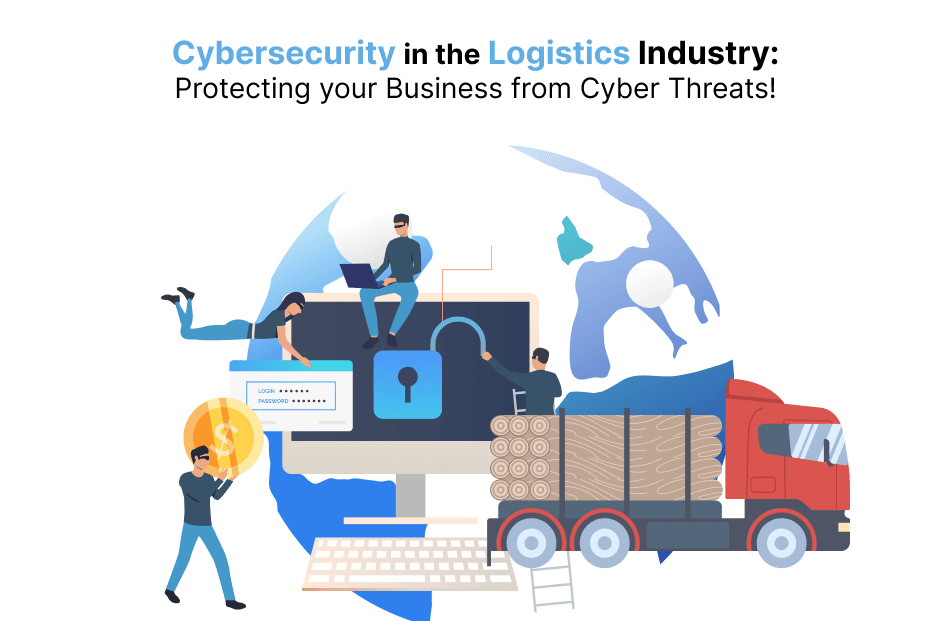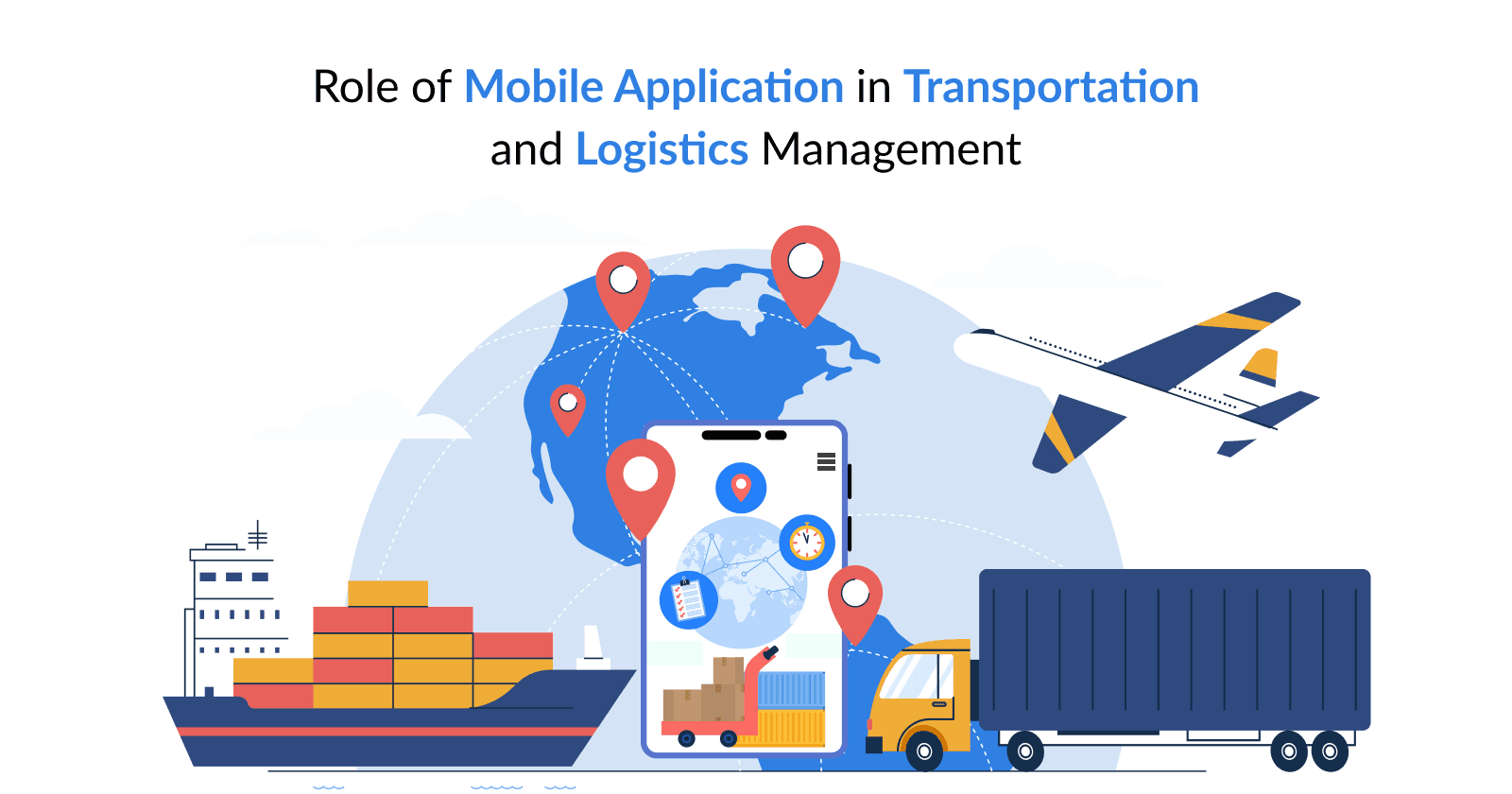Introduction
The logistics industry is a complex ecosystem that involves multiple stakeholders and processes, ranging from transportation and warehousing to inventory management and last-mile delivery. In recent years, cloud computing has emerged as a game-changing technology for logistics and supply chain management, providing a wide range of benefits, challenges, and opportunities.
The logistics industry is a complex ecosystem that involves multiple stakeholders and processes, ranging from transportation and warehousing to inventory management and last-mile delivery. In recent years, cloud computing has emerged as a game-changing technology for logistics and supply chain management, providing a wide range of benefits, challenges, and opportunities.
In this blog, we will explore the role of cloud computing in the logistics industry and supply chain management, and discuss the advantages, obstacles, and possibilities that come with its adoption.
What is Cloud Computing?
Cloud computing is a model of delivering computing services over the internet, including software, storage, and processing power. Instead of relying on physical servers or devices, cloud computing enables users to access and manage their data and applications through a network of remote servers hosted by third-party providers.
There are several types of cloud computing, including
Public Cloud
Where the cloud services are available to the general public over the internet
Private Cloud
Where the cloud infrastructure is dedicated to a specific organization and is not accessible by others
Hybrid Cloud
This combines public and private clouds to allow organizations to leverage the benefits of both
Multi-Cloud
This involves using multiple cloud providers to achieve specific goals or optimize performance
Benefits of Cloud Computing in the Logistics Industry
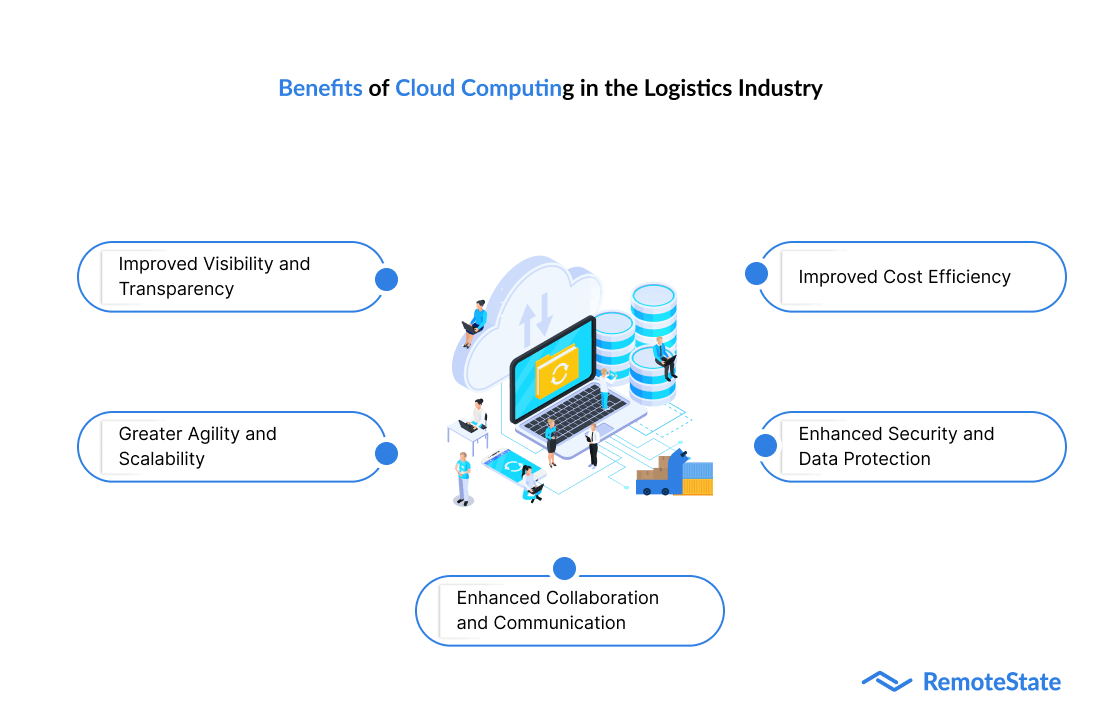
The logistics industry is heavily dependent on data, analytics, and collaboration across various stakeholders, including suppliers, carriers, shippers, and customers. As such, cloud computing offers several advantages that can enhance logistics and supply chain management, including:
Improved Visibility and Transparency
Cloud computing provides real-time access to data and analytics, enabling logistics managers to track shipments, monitor inventory levels, and optimize routes in real time. This enhanced visibility and transparency can help to identify bottlenecks and inefficiencies, reduce lead times, and improve overall performance.
Greater Agility and Scalability
Cloud computing allows logistics companies to scale their operations up or down as needed, without having to invest in additional hardware or infrastructure. This can be particularly useful during peak seasons or sudden spikes in demand, enabling logistics providers to respond quickly to changing market conditions.
Enhanced Collaboration and Communication
Cloud computing enables logistics stakeholders to share data and collaborate more easily, regardless of their location or device. This can help to streamline communication, reduce errors, and improve decision-making across the entire supply chain.
Improved Cost Efficiency
Cloud computing eliminates the need for organizations to invest in and maintain their hardware and infrastructure, which can be expensive and time-consuming. Instead, they can pay for cloud services on a subscription basis, which can help to reduce costs and improve profitability.
Enhanced Security and Data Protection
Cloud computing providers often have robust security measures and protocols in place to protect their clients' data and systems from cyber threats and data breaches. This can provide peace of mind for logistics companies, particularly as the risk of cyber attacks continues to increase.
Barriers to Cloud Computing in the Logistics Industry
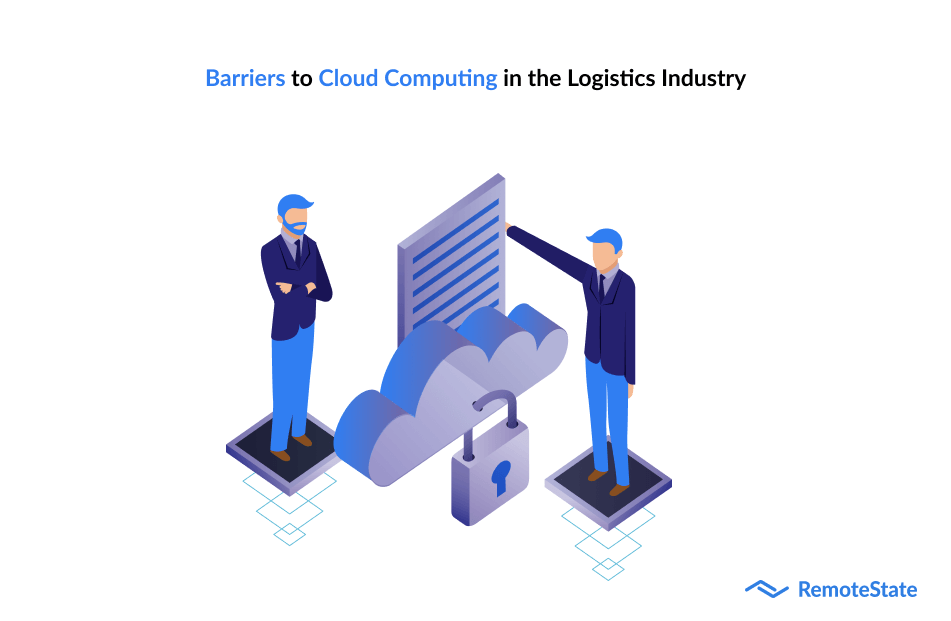
While cloud computing offers numerous benefits for the logistics industry, several challenges and obstacles must be addressed to ensure successful implementation and adoption. Some of these include:
Security and Privacy Concerns
Cloud computing involves storing and sharing sensitive data and information across remote servers and networks, which can increase the risk of cyber-attacks and data breaches. As such, logistics companies must ensure that they have appropriate security measures and protocols in place to protect their data and systems.
Integration and Compatibility Issues
Cloud computing often involves integrating multiple applications, systems, and devices, which can be complex and time-consuming. Logistics companies must ensure that their cloud solutions are compatible with their existing technology infrastructure and workflows.
Regulatory and Compliance Issues
The logistics industry is heavily regulated, and logistics companies must comply with numerous laws and regulations governing data privacy, security, and compliance. As such they must ensure that their cloud solutions meet all relevant regulatory and compliance requirements.
Dependence on Third-Party Providers
Cloud computing involves relying on third-party providers for hosting, storage, and other services. As such, logistics companies must carefully evaluate and select their cloud providers to ensure that they can provide reliable and secure services.
Cost Considerations
While cloud computing can help to reduce hardware and infrastructure costs, it can also involve ongoing subscription fees and other expenses. Logistics companies must carefully evaluate the costs and benefits of cloud solutions to ensure that they provide a positive return on investment.
Opportunities for Cloud Computing in the Logistics Industry
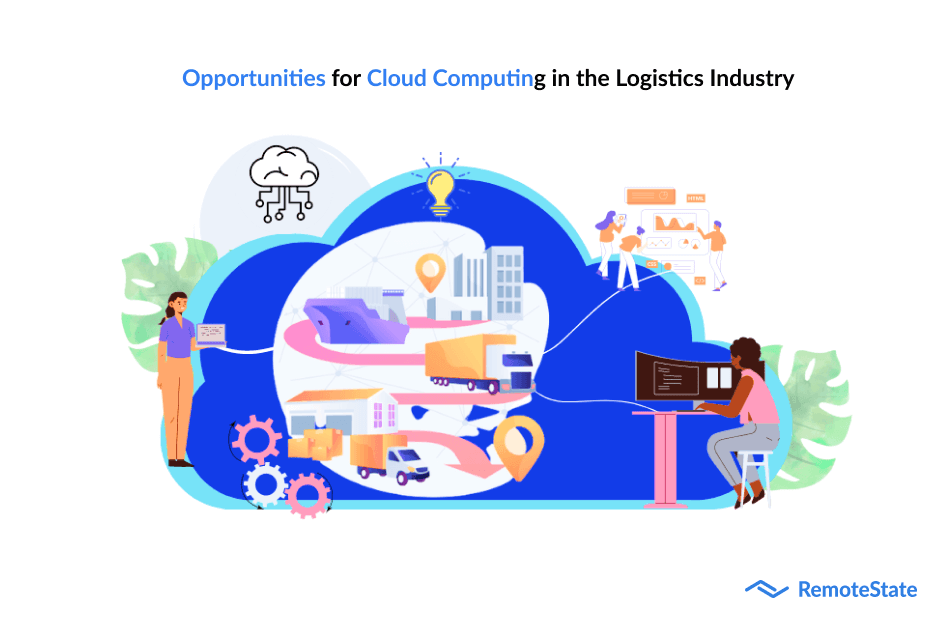
Despite the challenges and obstacles, cloud computing offers numerous opportunities for logistics companies to improve their operations and gain a competitive edge. Some of these opportunities include:
Advanced Analytics and Predictive Modeling
Cloud computing enables logistics companies to leverage advanced analytics and predictive modeling techniques to optimize their operations and improve performance. By analyzing data from across the supply chain, logistics companies can identify trends, patterns, and opportunities for improvement.
Artificial Intelligence and Machine Learning
Cloud computing can also enable logistics companies to leverage artificial intelligence and machine learning technologies to automate and optimize their operations. By using AI and ML algorithms to analyze data and make decisions, logistics companies can improve efficiency, reduce costs, and enhance customer satisfaction.
Internet of Things (IoT) Integration
Cloud computing can enable logistics companies to integrate IoT devices and sensors into their operations, providing real-time visibility and control over their assets and shipments. By leveraging IoT technologies, logistics companies can improve asset utilization, reduce waste, and enhance sustainability.
Blockchain Technology
Cloud computing can also enable logistics companies to leverage blockchain technology to enhance transparency, traceability, and security across the supply chain. By using blockchain-based systems to record and track transactions, logistics companies can improve trust, reduce fraud, and enhance compliance.
Conclusion
In conclusion, cloud computing has emerged as a key technology for logistics and supply chain management, providing numerous benefits, challenges, and opportunities. While there are obstacles and challenges to implementing cloud solutions in logistics, the benefits of enhanced visibility, agility, collaboration, cost efficiency, and security make it a compelling option for logistics companies looking to improve their operations and gain a competitive edge.
How Remotestate Can Help Logistics Companies Leverage the Power of Cloud Computing!
Remotestate can play a crucial role in helping logistics companies leverage the power of cloud computing to enhance their operations and gain a competitive edge.
Here are some ways that Remotestate can help:
Cloud Strategy and Roadmap Development
Remotestate can work with logistics companies to develop a comprehensive cloud strategy and roadmap, outlining how cloud computing can be leveraged to achieve their business goals and objectives. This includes identifying the most appropriate cloud solutions, providers, and deployment models based on the unique needs of the logistics company.
Cloud Migration and Implementation
Remotestate can assist logistics companies in migrating their applications, data, and infrastructure to the cloud, ensuring a seamless and secure transition. This includes providing support for cloud deployment, configuration, and optimization, as well as ensuring compliance with relevant regulatory and security requirements.
Cloud Integration and Customization
Remotestate can help logistics companies integrate cloud solutions with their existing systems and applications, ensuring smooth and efficient workflows. This includes customizing cloud solutions to meet the unique needs and requirements of the logistics company, as well as providing ongoing support and maintenance.
Cloud Security and Compliance
Remotestate can help logistics companies ensure the security and compliance of their cloud solutions, providing ongoing monitoring, management, and reporting. This includes implementing appropriate security measures, such as data encryption, access controls, and identity and access management, as well as ensuring compliance with relevant regulations and standards.
Overall, Remotestate can provide logistics companies with the expertise, resources, and support they need to successfully leverage cloud computing and gain a competitive edge in the industry. By partnering with Remotestate, logistics companies can streamline their operations, enhance their efficiency, reduce costs, and improve customer satisfaction.
FAQs
What is cloud computing in logistics?
Cloud computing is a model of delivering computing services over the internet, including software, storage, and processing power. In logistics, cloud computing enables logistics companies to access and manage their data and applications through a network of remote servers hosted by third-party providers.
What are the benefits of cloud computing in logistics?
The benefits of cloud computing in logistics include improved visibility and transparency, greater agility and scalability, enhanced collaboration and communication, improved cost efficiency, and enhanced security and data protection.
What are the challenges of cloud computing in logistics?
The challenges of cloud computing in logistics include security and privacy concerns, integration and compatibility issues, regulatory and compliance issues, dependence on third-party providers, and cost considerations.
What are the opportunities of cloud computing in logistics?
A: The opportunities of cloud computing in logistics include advanced analytics and predictive modeling, artificial intelligence and machine learning, IoT integration, and blockchain technology.
Publication Date
2023-04-13
Category
Logistics
Author Name
Sajal Nehra
